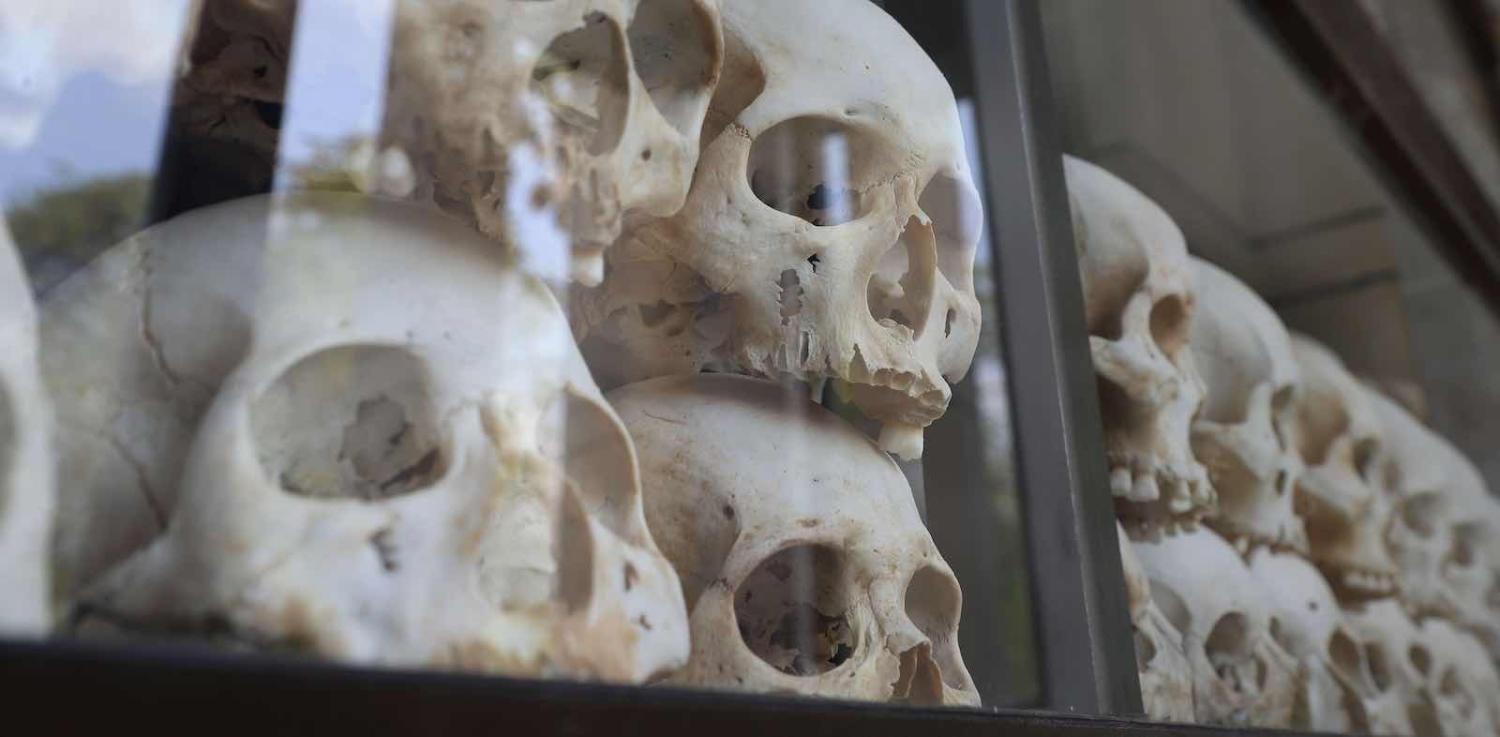Nuon Chea and Khieu Samphan, high ranking officials of the Pol Pot regime, have been sentenced to life imprisonment twice over for their role in the genocide of the Cham Muslim and ethnic Vietnamese minorities during the Khmer Rouge era.
The landmark judgment delivered this month by the Extraordinary Chambers in the Courts of Cambodia (ECCC) found the pair guilty of crimes against humanity, including murder, forced marriage and rape, forced labour, among others.
The decision of the chamber and the institution which issued it are noteworthy for a few reasons, not all positive. Of the two completed cases at the ECCC, the guilt of only three individuals has been adjudicated upon. Four defendants are yet to face trial, which is unlikely to proceed due to government opposition.
With over a decade to prosecute these cases, the significant cost at approximately US $300 million, the few individuals prosecuted, and the length of time since the violations occurred are all valid criticisms. Allegations of mismanagement, corruption and questions relating to the fairness of proceedings have also been raised.
What needs to be assessed is the meaning these prosecutions hold for survivors and society at large.
Yet the measure must not be in pecuniary terms only. Rather, what needs to be assessed is the meaning these prosecutions hold for survivors and society at large. Again, the response may vary, and it does not help to imbue such prosecutions with overarching goals of reconciliation and healing. Viewed through another lens, however, it may be simpler to put it into context – that of rampant impunity, not just in Cambodia but in the region as a whole.
In Asia, there are legacies of impunity for mass atrocities in multiple countries including Indonesia, Nepal, Sri Lanka, and South Korea, to name a few. The pre-cursor to international accountability for the region arguably is the International Military Tribunal for the Far East, which addressed Japanese atrocities in the Second World War but has been the subject of stringent criticism, unlike the Nuremberg trials.
The argument of “Asian values” and exceptionalism has been invoked effectively in safeguarding sovereignty and the “neo-colonial” reach of international institutions – in effect though, entrenching impunity for the powers that be. There are no regional mechanisms that hold states to account, such as the Inter-American, African, and European courts of human rights (even though their remit is not mass atrocity prosecutions but instead addressing state violations of rights).
Overall, there has been a reluctance to tackle impunity in Asia, resulting in a tepid or even harsh response to the idea of prosecuting international crimes, either by supra-national institutions or even within the domestic legal system. Part of this picture is the low ratification of the International Criminal Court (ICC) by countries in Asia, and with the first withdrawal by the Philippines set to take effect in March 2019.
Yet calls for international accountability in the region have also increased, with the actions of the Myanmar government against the Rohingya leading to an International Criminal Court examination – albeit limited – regarding the crime against humanity of deportation and associated crimes. The Human Rights Council has also agreed to establish an independent mechanism (akin to that created for Syria), with the task of collating, preserving, and analysing evidence for eventual use in criminal trials.
How these trials may be conducted is, however, unclear and includes the possibility of an international, hybrid, or mixed tribunal, and is not limited to the ICC. There is a wealth of experience to draw from, including the tribunals for the former Yugoslavia and Rwanda, and the special courts for Sierra Leone and Lebanon.
While all are instructive, invariably the record of the ECCC will be scrutinised – with a view to argue for or against international justice, particularly as it relates to Asia. There are multiple lessons to be learned, and pitfalls to avoid – the most glaring being the lapse of time from the atrocities to eventual prosecution.
While understanding the complexities involved in the facilitation of peace processes, the calls for justice for international crimes in the immediate aftermath of mass atrocities should not be disregarded. The damage to rule of law and institutions, as well as the reacquisition of power and rewriting of history by the individuals and political dynasties implicated, should serve as a cautionary tale.
The merits and problems of “mixed” tribunals, subject to the vagaries of domestic politics and interference need to be taken into account. The focus of indictments require scrutiny – either resulting in too few individuals higher up in the hierarchy being prosecuted or emphasis on foot-soldiers as initially done at the Yugoslav tribunal which can impact proceedings detrimentally.
And lastly, the complexity of these trials should not be forgotten. While there is a need for greater efficiency, the reality of achieving justice with proper regard to the rights of defendants and with procedural standards cannot be gainsaid.
Impunity has been the norm in the region, with little to no accountability for perpetrators. Ultimately accountability and the end of impunity is crucial for survivors, and in that respect, this may be the threshold of a new chapter in Asia.

